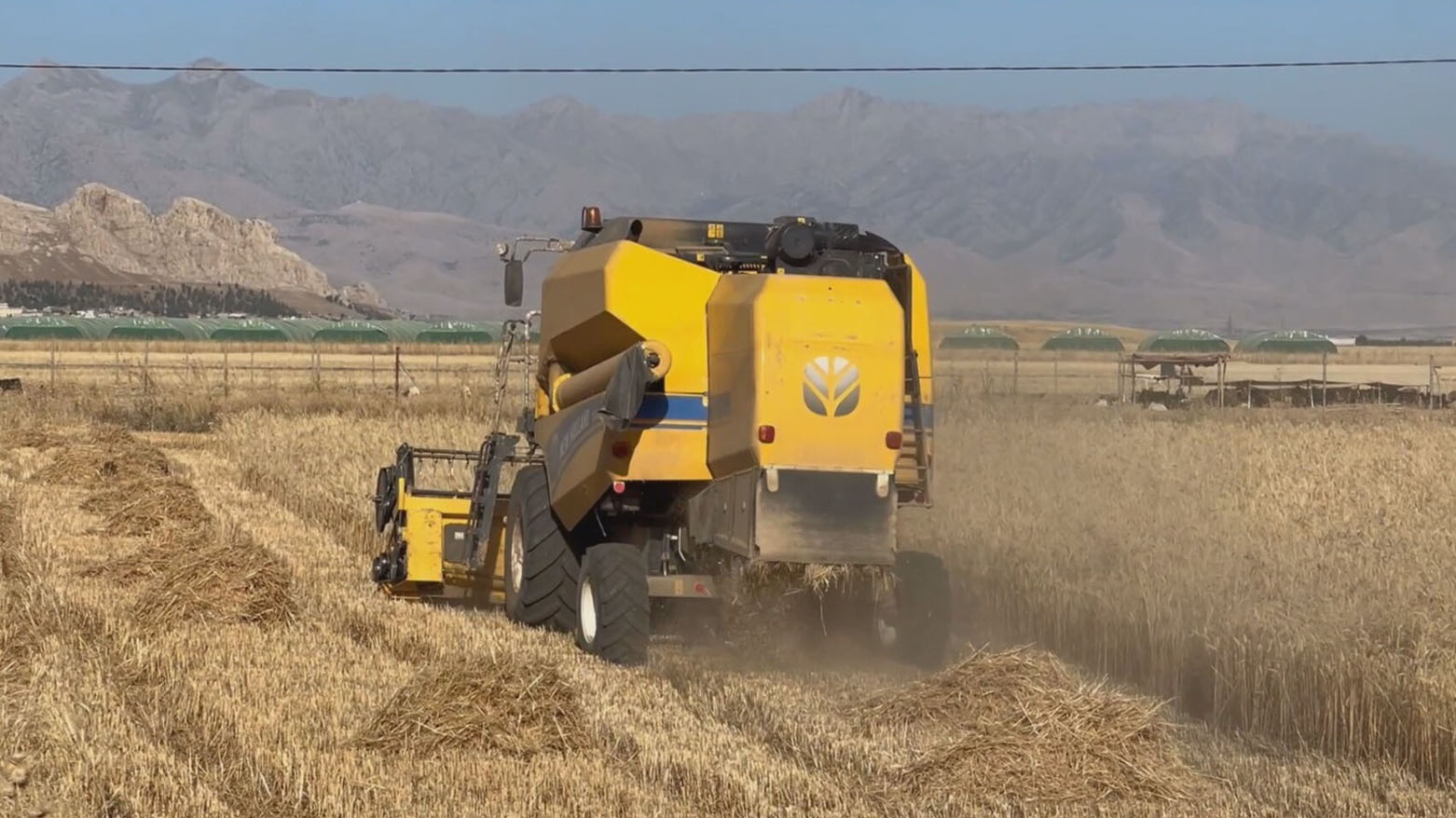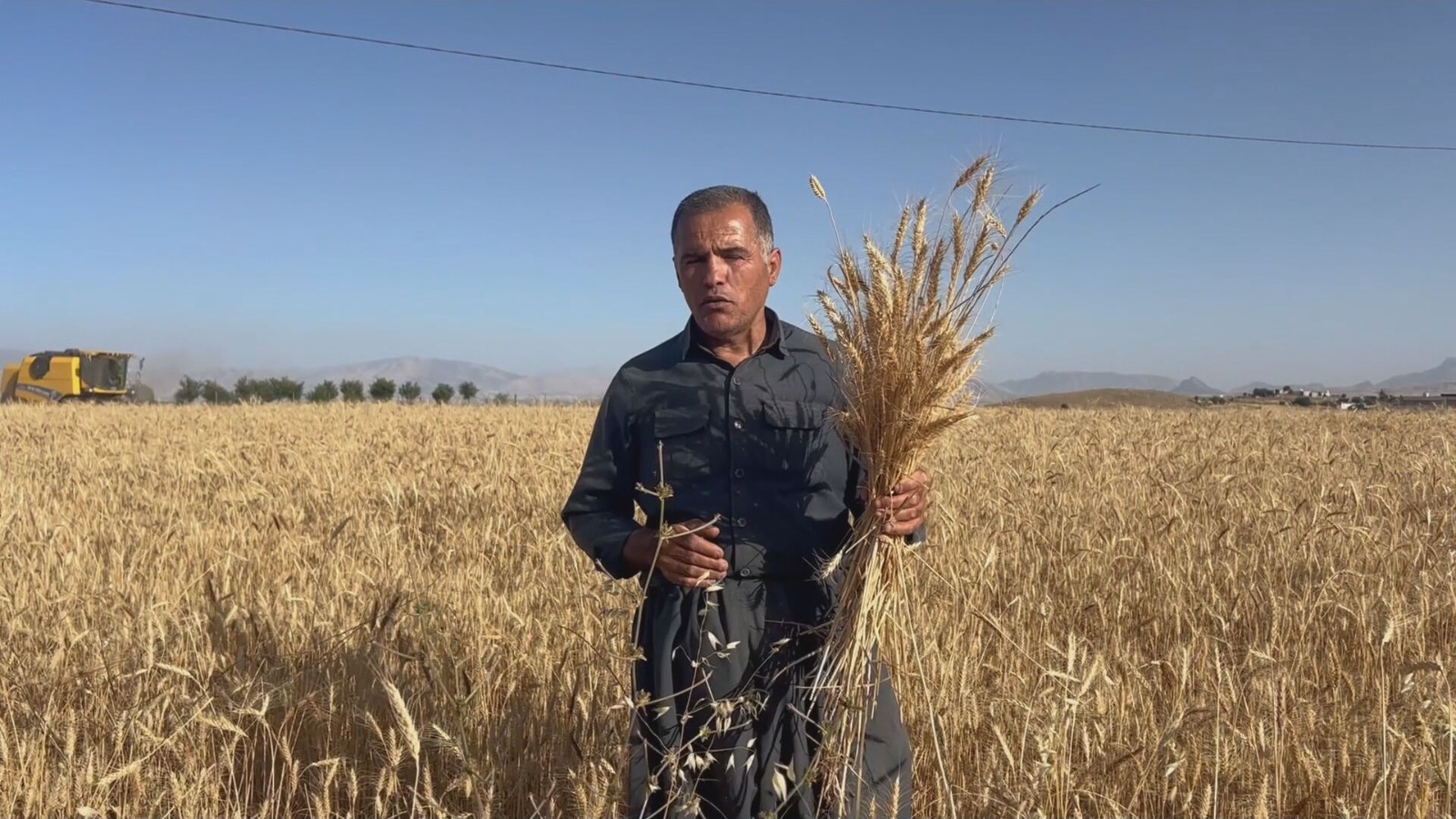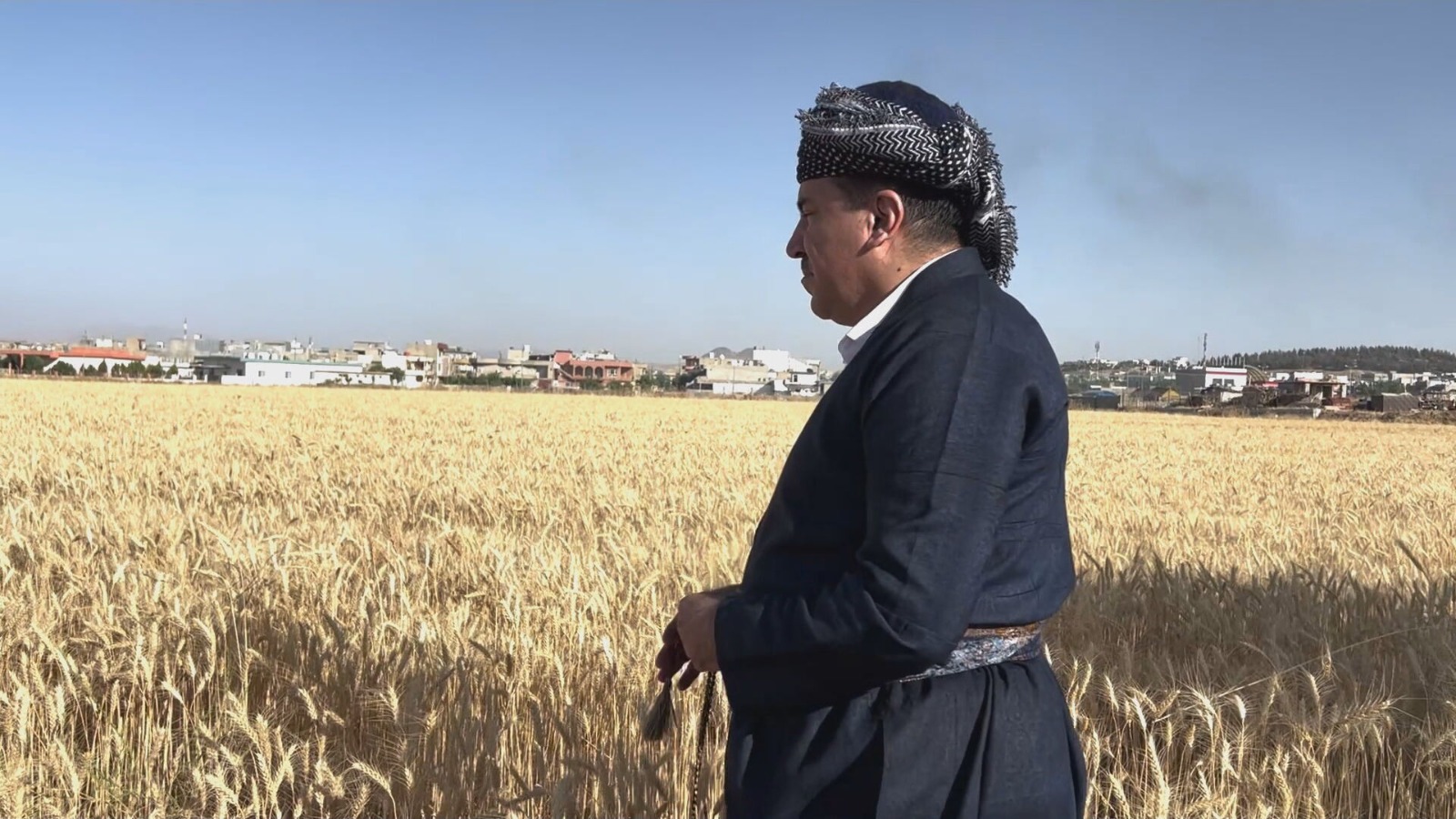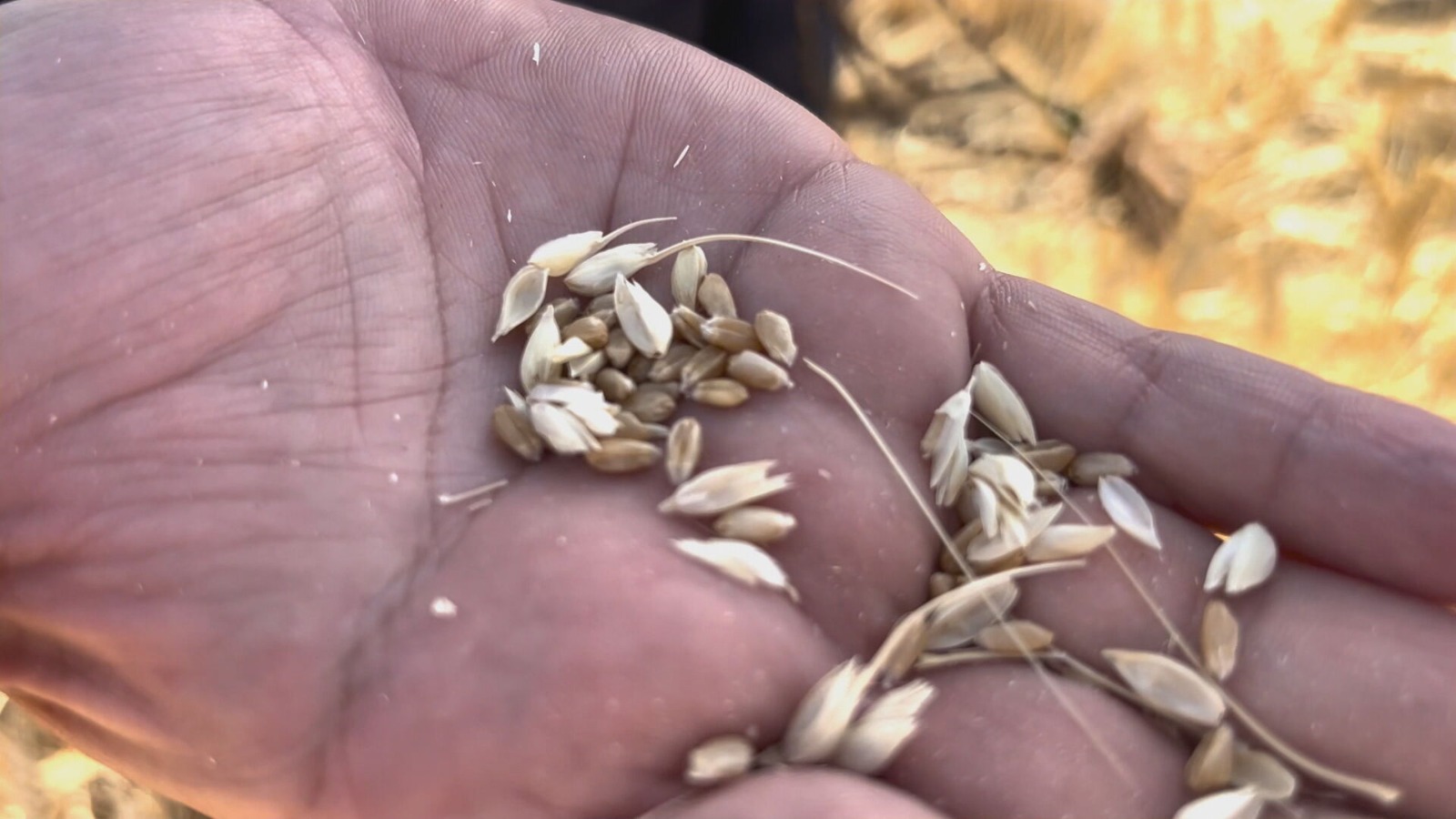Against the Odds: Sharazur Wheat Survives Harshest Drought Year
Despite drought and limited rainfall, Sharazur farmers achieved a strong wheat harvest. Yet they face frustration over Baghdad’s low quotas and pricing policies. Farmers warn that without fair support, the region’s agricultural resilience—and Iraq’s food security—remain at risk.

By Kamaran Aziz
ERBIL (Kurdistan24) – In defiance of one of the harshest drought years in recent memory, farmers in the fertile Sharazur Plain have achieved an impressive wheat harvest—despite a dramatic drop in rainfall and what they describe as “unfair” procurement policies imposed by the Iraqi federal government.
Strong Yields Despite Harsh Conditions
"Although rainfall was scarce, the quality of this year’s wheat is excellent," said Sarkhel Anwar, a Sharazur farmer who cultivated over 1,000 dunams of wheat. Like many others in the region, Anwar voiced deep frustration over the federal agricultural quota system.
"The government takes 131 kilograms per dunam as quota. That’s a great injustice to us Kurdish farmers," he told Kurdistan24.

Timely Rainfall Saved the Season
Farmers in the region credit a brief yet crucial rainfall event just before Eid al-Adha with salvaging their crops.
"We were on the verge of losing everything, but an hour of rain saved Sharazur’s wheat," said Rebwar Mahmoud, another local farmer. "It wasn’t much, but it made all the difference."

A Kurdish farmer stands in his wheat field in Sharazur. (Photo: Kurdistan24)
Active Harvest and Official Figures
As the harvest season nears its end, dozens of combine harvesters are working across the fields. According to Fereydoun Hassan, Director of Agriculture in Sharazur, the scope of this year's agricultural effort is substantial:
- Total arable land: 62,000 dunams
- Land actually planted with wheat: 56,000 dunams
- Registered farmers delivering the harvest: 2,200
Wheat purchase prices, as determined by official guidelines, stand at 850 IQD per kilogram for dryland wheat and 800 IQD per kilogram for irrigated wheat.
However, Baghdad has capped the Kurdistan Region’s wheat quota at just 400,000 tons. Local officials say this figure falls significantly short of what is needed to support Kurdish agriculture.

A Kurdish farmer displays a handful of his wheat harvest to a Kurdistan24 reporter. (Photo: Kurdistan24)
Sharazur: A Cornerstone of Food Security
The Sharazur Plain is widely regarded as one of the Kurdistan Region’s most fertile and agriculturally productive zones. Beyond wheat, the area yields a wide variety of crops, contributing significantly to food security not only in Kurdistan but also in central and southern Iraq.
Record Low Rainfall
This year, rainfall in the Sharazur region plummeted to just 400 millimeters—a stark contrast to the 1,200 millimeters recorded the previous year. Despite the adversity, local farmers consider themselves more fortunate than others in the Kurdistan Region, citing the strategic timing of the limited rain as the saving grace.
In a broader context of agricultural decline across Iraq, where persistent drought conditions have devastated crop yields, Sharazur District stands out as a rare beacon of resilience. Yet, this resilience is increasingly at risk. Farmers stress that without tangible support from Baghdad, including fair procurement policies and investment in irrigation infrastructure, the sustainability of Sharazur’s agricultural success remains uncertain.
"Real backing is needed," one farmer warned. "Not additional burdens that undermine our hard work and the food security of the region."
Kurdistan24's correspondent Asan Mohammed from Halabja contributed to this report.